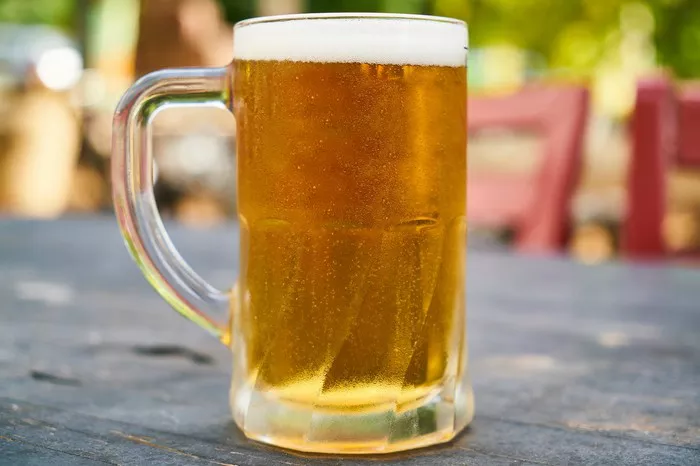Beer is a popular beverage enjoyed by many, but if you have diabetes, you might be concerned about how it affects your blood sugar levels. Diabetes management involves careful monitoring of your diet, including understanding how different foods and drinks can impact your health. This article explores whether people with diabetes can drink beer, the effects of beer on blood sugar levels, and practical tips for enjoying beer responsibly while managing diabetes.
Understanding Diabetes
Types of Diabetes
Diabetes is a chronic condition characterized by high blood sugar levels. There are several types of diabetes:
Type 1 Diabetes: An autoimmune condition where the body does not produce insulin. People with Type 1 diabetes must use insulin therapy.
Type 2 Diabetes: A condition where the body becomes resistant to insulin or does not produce enough insulin. It is often managed with lifestyle changes, medication, and insulin.
Gestational Diabetes: This type occurs during pregnancy and typically resolves after childbirth, but it increases the risk of developing Type 2 diabetes later in life.
Blood Sugar Management
Managing blood sugar levels is crucial for people with diabetes. This involves monitoring glucose levels, taking medications as prescribed, and making dietary adjustments.
Beer and Its Nutritional Content
Ingredients of Beer
Beer is made from basic ingredients: water, malted barley, hops, and yeast. These ingredients contribute to its flavor, alcohol content, and calorie count.
Alcohol Content: Beer typically contains 4-6% alcohol by volume (ABV), though this can vary. Higher alcohol content can increase caloric intake.
Carbohydrates and Sugars: Beer contains carbohydrates, which can impact blood sugar levels. The carbohydrate content varies depending on the type and brand of beer.
Calories in Beer
A standard 12-ounce (355 ml) serving of regular beer usually contains about 150-200 calories. Light beers often have fewer calories, typically around 90-110 per serving.
Impact of Beer on Blood Sugar Levels
Alcohol and Blood Sugar
Alcohol can affect blood sugar levels in several ways:
Initial Increase: Beer can cause a temporary increase in blood sugar levels due to its carbohydrate content.
Delayed Effect: Alcohol can also cause a delayed drop in blood sugar levels. This occurs because alcohol affects the liver’s ability to release glucose into the bloodstream.
Carbohydrate Content
The carbohydrate content in beer can raise blood sugar levels. This is especially important for people with diabetes, who need to monitor their carbohydrate intake.
Glycemic Index of Beer
The glycemic index (GI) measures how quickly a food or drink raises blood sugar levels. Beer has a moderate to high GI, which means it can impact blood sugar levels relatively quickly.
See Also: Is non-alcoholic beer bad for your kidneys? All you should know
Beer and Diabetes: What to Consider
Moderation
Moderation is key when consuming beer with diabetes. Drinking beer in moderation can help manage its impact on blood sugar levels. Limiting intake to one or two servings can reduce the risk of significant blood sugar spikes.
Choosing the Right Beer
Selecting beers with lower carbohydrate content can help manage blood sugar levels. Light beers and low-carb options are generally better choices for people with diabetes.
Monitoring Blood Sugar Levels
It is essential to monitor blood sugar levels before and after drinking beer. This helps understand how beer affects your individual blood sugar response and adjust your diabetes management plan accordingly.
Practical Tips for Drinking Beer with Diabetes
Check Labels
Always check the nutritional labels of beers to understand their carbohydrate and calorie content. This information can help you make informed choices.
Avoid Drinking on an Empty Stomach
Consuming beer with food can help mitigate blood sugar spikes. Eating a balanced meal or snack before drinking beer can stabilize blood sugar levels.
Stay Hydrated
Drinking water alongside beer can help manage hydration and reduce the risk of dehydration, which can affect blood sugar levels.
Alternatives to Regular Beer
Non-Alcoholic Beer
Non-alcoholic beers typically have fewer calories and carbohydrates than regular beers. They can be a good alternative for those who want to enjoy the taste of beer with a lower impact on blood sugar levels.
Low-Carb Beers
Low-carb beers are specifically designed to have reduced carbohydrate content. They can be a suitable option for managing blood sugar levels while enjoying beer.
Consulting Healthcare Professionals
Personalized Advice
Consulting with a healthcare provider or a registered dietitian can provide personalized advice based on your individual health needs. They can help you develop a plan that incorporates beer into your diet without compromising blood sugar control.
Adjusting Medications
If you plan to include beer in your diet, it is important to discuss this with your healthcare provider. They may need to adjust your medication or insulin regimen based on your beer consumption.
Conclusion: Enjoying Beer Responsibly with Diabetes
People with diabetes can enjoy beer, but it requires careful management and moderation. Understanding the carbohydrate content, monitoring blood sugar levels, and choosing lower-carb options can help manage the impact of beer on blood sugar. Always consult with healthcare professionals for personalized advice and adjustments to your diabetes management plan. By taking these steps, you can enjoy beer responsibly while maintaining control over your diabetes.
This comprehensive guide provides insights into how beer affects blood sugar levels and offers practical tips for enjoying it as part of a diabetes-friendly lifestyle.


